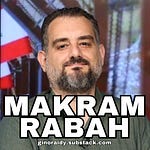
Sometimes, it feels like nothing happens for a very long time. But Lebanon is not in one of those times. Right now, events are unfolding so quickly, and the sheer volume of noise from all sides them makes it easy to miss the massive shift in the balance of power that’s taking place beneath the surface, if one wasn’t paying close attention.
The recent developments are not just the usual dishonest political maneuvering; they carry significant weight, even if they’re not being framed as that explicitly. The news that Lebanese authorities thwarted an attempt by the Iranian regime to smuggle $2.5 million in cash via Turkey at Beirut International Airport last week is just the latest in a series of truly historic moments that aren’t being processed with the gravity they deserve. This isn’t an isolated incident but part of a larger pattern that signals fundamental changes in Hezbollah’s position within Lebanon and beyond. Let’s discuss.
The Shift in Hezbollah’s Tone—and Actions
From Sheikh Naim Qassem’s speech at Hassan Nasrallah’s funeral, which I analyzed last week, that made it clear that a tonal shift was underway. At the time, it could have been dismissed as lip service. However, Hezbollah MPs’ decision to grant Nawaf Salam’s cabinet a vote of confidence in Parliament shows that this shift isn’t just rhetorical—it’s strategic. Especially after they released their electronic militias ahead of the funeral to try to transfer the blame from Hezbollah’s government to the incoming one. One day they’re sending every female influencer they have to call Salam a zionist, the next they’re voting confidence in him. I can’t imagine the whiplash Hezbollah supporters must be feeling right now.
Another indicator that this shift is real, not playing pretend like Wafik Safa had tried and failed to do, is Hezbollah’s growing frustration with the Lebanese Armed Forces (LAF) under Joseph Aoun’s command. Unlike in previous conflicts, the LAF is actually enforcing United Nations Security Council Resolution 1701, actively confiscating Hezbollah’s weapons caches and preventing further escalation along the border and thwarted Hezbollah’s attempts to shut down the airport. This marks a rare moment where Lebanon’s official security forces are taking an assertive stance, rather than ceding ground to Hezbollah’s parallel military structure. In the end, the solution for Hezbollah was decking out their supporters in merch as they come through the terminal gate, a far cry from burning UNIFIL cars and threatening a civil war if the smuggling from Iran by plane didn’t resume immediately.
The Wall Street Journal also reported that Hezbollah has ordered its non-local fighters to withdraw north of the Litani River, signaling an acknowledgment—whether voluntary or forced—that the group cannot operate with impunity as it once did. These are not the actions of an organization at its peak; they are survival tactics from a group that’s being boxed in and trying to navigate the new reality of their bad decisions helped bring on.
A Weakened Hezbollah Facing Economic & Political Constraints
Beyond military and political constraints, Hezbollah is facing financial and logistical setbacks that further illustrate its diminishing dominance. The fall of the Assad regime in Syria, the collapse of Hezbollah’s Captagon empire, and Iran’s growing economic struggles are all contributing to this pressure. All that, plus Hezbollah’s heavy losses in the latest war with Israel, along with increased targeting of its supply lines, have significantly weakened its ability to operate unchecked.
A telling indicator of Hezbollah’s weakened state is how it is handling the aftermath of the recent destruction in southern Lebanon by Israel. Previously, Hezbollah would promise to finance the reconstruction of homes destroyed as a result of its unilateral decisions, using Iranian funding to maintain loyalty in these devastated communities. But this time, it is shifting responsibility onto the Lebanese state, with Prime Minister Nawaf Salam touring the South to assess the damage.
The complaints and demands he faced from residents—some of whom are Hezbollah’s core supporters—mirror the rhetoric seen in Hezbollah-affiliated media. The reality is sinking in: Hezbollah’s promise of protection and resilience was little more than bravado, and now, it lacks the financial or logistical ability to clean up its own mess.
The Growing Disillusionment
This growing disillusionment among Hezbollah’s traditional base is perhaps the most significant development of all. The cycle is familiar—Hezbollah provokes conflict, destruction follows, and then it reassures its supporters that they will be taken care of. But this time, the group is no longer in a position to make such guarantees. The Lebanese people are being asked to foot the bill for yet another costly and misguided conflict they didn’t agree on going into, with no assurances that it won’t all happen again in another 10-15 years.
This time, it has to be different. The frustration of those whose homes have been reduced to rubble is no longer just an abstract political issue—it is a lived reality. And as Hezbollah faces mounting pressure from the state, from international actors, and from within its own ranks, the possibility of meaningful change—of breaking this destructive cycle—has never felt more tangible.
I was on a long call with my friend from Nabatieh. His home has been destroyed for the third time in his lifetime. Imagine rebuilding, only for another Hezbollah-Israel war to reduce it to rubble every decade or so. We can't keep repeating the same cycle. This time, we need to do something different—not fall into the same patterns we did in 2006, which led us to the mess we’re in today.
What Can Be Done?
Hezbollah is weaker than it has been in years, but that doesn’t mean it will disappear overnight. The Lebanese state and civil society must seize this moment.
First, strengthening the Lebanese Armed Forces is essential. The LAF's enforcement of UNSCR 1701 has shown that it can act independently of Hezbollah’s influence, but it needs sustained international support to continue this role effectively. The more capable the LAF becomes, the more room there is for Lebanon to push back against Hezbollah’s unchecked military dominance. Joseph Aoun's first official visit as president will be to Saudi Arabia, where discussions on the previously halted $3 billion military aid grant—frozen after Hezbollah's intervention in Syria in support of Bashar al-Assad—signal a renewed commitment to strengthening the Lebanese Armed Forces. This move suggests that substantial external support for the LAF is on the horizon, reinforcing its role as Lebanon's primary security force.
Second, Lebanon must establish economic policies that curb Hezbollah’s ability to operate as a parallel state. This means closing off its revenue streams—whether from illicit trade, tax evasion, drug smuggling, or Iranian funding. Enforcing financial transparency laws and cutting off Hezbollah’s access to state funds will further limit its ability to manipulate the Lebanese economy for its own survival.
Lastly, and most important, we must continue to hold Hezbollah accountable. Public sentiment is shifting, and disillusionment is growing. Civil society organizations, independent media, and political opposition must amplify this dissatisfaction and translate it into sustained pressure on both Hezbollah and the Lebanese government.
The days of Hezbollah acting with impunity may not be over yet, but the cracks in its foundation are deepening. How Lebanon responds now will determine whether these cracks widen into a real opportunity for change.
The vote of confidence in Nawaf Salam’s cabinet is not just a political gesture. It is a signal that Hezbollah is playing defense, making concessions, and struggling to maintain the illusion of control.
This moment should not be overlooked. It is the outstretched hand of a group that once believed they could control Lebanon and Syria indefinitely. We should take it—but only with ironclad guarantees that they can never again drag us into conflicts we do not choose, whether through their invasion and occupation of Syria or their proxy wars for Hamas. Only then can we begin rebuilding what their policies of intimidation, deadlock, assassinations, and violence have destroyed—once and for all.












Share this post